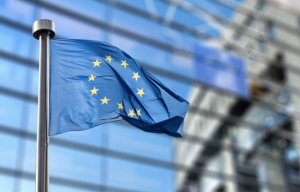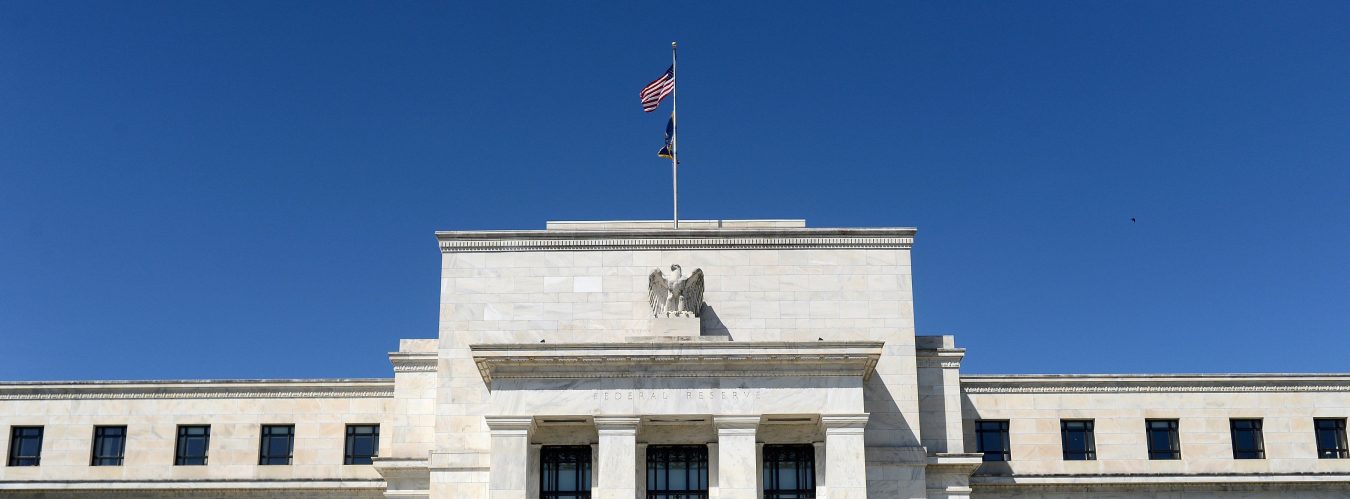Introduction
The world today has many troubled societies, most of which are unable to create order on their own; this, in part, is due to unfavorable social, political, or economic circumstances. To combat the aforementioned conditions, and specifically focusing on the economic circumstances, institutions are set in place to help avoid economic turmoil. These monetary institutions have a degree of monetary sovereignty over countries that are not strong enough or developed enough to be able to implement policies on their own.
What does having monetary sovereignty do for a country or territory? Having monetary sovereignty gives three distinct or exclusive rights to the area. The first right is the right to issue currency. Currency is considered to be coins, banknotes, or other forms of payment that are accepted as legal tender, a form of payment that is accepted by government officials of a given country. The concept of monetary sovereignty has changed throughout history, and those who have power over monetary decisions have changed as well. In this section, the contemporary debates and issues regarding monetary sovereignty will be analyzed and explained. More specifically, the debates and issues to the International Monetary Fund will be analyzed and explained first, followed by the debates and issues of the euro and the European Union.
International Monetary Fund (IMF)
What is the International Monetary Fund?

As described before, monetary sovereignty is different around the world. In other words, not all countries get the privilege or opportunity to create, maintain, or change the monetary policies that are set in place. However, with that being said, there are countries that do have control over monetary decisions. For those who do not have that power, there are institutions such as the International Monetary Fund to fill the void that is sometimes experienced.
The International Monetary Fund was established in July of 1944 at a UN conference held in Bretton Woods, New Hampshire.[1] It is important to note the year in which the IMF was established, as it was created after the end of World War II. This was done to oversee the operation of the postwar international monetary system. In addition, it was also created to build an economic framework to avoid another Great Depression.[2]
The primary purpose of the IMF is to ensure stability of the international monetary system, and the original aims of the IMF are as follows:
- Promote international monetary cooperation
- Facilitate the expansion and balanced growth of international trade
- Promote exchange stability
- Assist in the establishment of a multilateral system of payments
- To make resources available to members of experiencing balance of payment difficulties
The job of the IMF does not just apply to just one country or area. Instead, it monitors the economic policies for the 189 countries that are members of the IMF.[3] In addition to the monitoring of policies, the IMF also assists countries in training the countries of the policies so they themselves are able to transfer them to their citizens.
Debates and Issues of the IMF
Immediately after the creation of the IMF, one of the biggest issues or critiques of the institution was the overall view of the IMF. On one side, the pessimists of the IMF expected a catastrophe to result, and they expected the economy to return to the economic warfare of the 1930s, which was highly unfavorable.[4] On the other side, the optimists expected that the floating exchange rates at the time would take care of all of the international monetary problems that were occurring, which in their view an organization such as the IMF would not be necessary.[5]
Another issue that has been evident is whether or not the IMF is adequately fulfilling the intended job it was created for. In many cases, the IMF has been “notorious for forcing countries into austerity programs”, and have “forced countries to live within their means and offer meager amounts of financial assistance in exchange for the adoption of macroeconomic stabilization and market liberalization policies”.[6] These opposing and sometimes negative views are crucial, because one of the original goals of the IMF was to help make the economy within countries better and stronger. In many political issues or topics, it is very common that there are opposing views from both the left and the right sides. However, with the case of the IMF, both the left and the right view the IMF negatively, which does not help the situation.[7]
One last issue or debate that is closely related the question of whether or not the IMF is doing its job, is the overall effectiveness of the IMF. Overall, the general consensus of the IMF is that it is characterized as being ineffective. A large reason for this is due to the results of the economies that the IMF is involved with. More often than not, it is found that the IMF “have not been associated, on average, with any clear economic gains to recipient countries”.[8] It is often thought too that the IMF more often than not hurts the countries with which it is involved as opposed to helping them.[9] However, it is important to understand with these criticisms that the critics are looking at the short term, instead of looking at the long term effects.
While the IMF does have monetary sovereignty over multiple countries, and there is a negative connotation with the organization, it is important to look at and understand what goes on after they conclude their work. Much of the criticisms that the IMF faces revolves around how a country does after the policies are instituted by the IMF. The IMF does have control over countries, but it is up to the officials within those countries to reinforce their work. Since they are not doing that, they are not appearing as effective to those on the outside looking in.
European Union (EU)
What is the European Union?

Much like the IMF, the European Union is a “monetary union that coordinates economic policy-making to support the economic aims of Europe”.[10] The member states that make up the European Union include: Austria, Belgium, Cyprus, Estonia, Finland, France, Germany, Greece, Ireland, Italy, Latvia, Lithuania, Luxembourg, Malta, Netherlands, Portugal, Slovakia, Slovenia, and Spain.[11] The Non-euro area member states are made up of Bulgaria, Croatia, Czech Republic, Hungary, Poland, Romania, and Sweden.[12] The difference between Euro-area member states and Non-euro area member States is Euro-area member states are those states or countries that fall within the legal rights, capacity, and supervision of the EU, and use the euro. The Non-euro area member states are those states or countries that are not part of the EU or the euro area, but still use the euro as a form of currency. The euro was made in 1999, and once created, the economies that adopted the euro would eventually become integrated. However, being integrated as the European Union has not all been seen in a positive light.
Debates and Issues of the European Union
The above video is a discussion that begins briefly talking about the US, but the main focus of the discussion is the issues of the EU that will be further discussed in this section.
Many of the debates and issues with the European Union rest in the views of the use of the euro as currency. One of the strongest, positive views of the use of the euro within the European Union is the integration of the member states that belong to it. The use of the euro as a uniting force is seen as the “most significant move toward European integration” for many reasons.[13] Those reasons include as a “logical follow-up to the European single market allowing for free movement of goods, capital, labour, and services”.[14] Having one currency for trade, employment of services, and other uses is very effective in eliminated things such as transaction costs between currencies of foreign countries, and could even lead to increased investment. It also helps to make trade a lot easier between countries. While this is one side of the debate of the European Union, and the euro, it is also important to consider the other side of the equation as well.
While the integration of Europe through the euro is seen in a positive light, there are opposing views of the EU and the euro that cannot be ignored. While there were a lot of positives that coincide with a single currency, “the economic costs and benefits of a common currency are still uncertain and depend on scope conditions which cannot adequately be predicted at this point”.[15] In direct response to the integration of Europe, it is still very unclear as to whether a common currency such as the euro has benefits that outweigh the consequences. It is important to take a step back and look at the European Union and the euro from a realist perspective. A big question regarding the EU is has European integration been routed in solving economic problems, or is it more about security concerns?[16] The answer to the previous question is difficult to answer from an outsiders perspective. One would hope the creation of the euro and the European Union would benefit the member states, but as seen throughout the history of the euro, that is not always the case.
In addition to the question of the integration of Europe through the euro, perhaps a bigger debate, and an area where the euro is facing a lot of criticism is the loss of monetary sovereignty in the member states that have adopted the Euro.[17] By countries adopting the euro, in almost all cases, those countries forfeit their monetary power over to the EU. In turn, forfeiting their monetary power gives them little, if any control, and in some cases it proves to be detrimental. This is best exemplified in the case of GIPSI, or the countries Greece, Ireland, Portugal, Spain, and Italy. These countries were greatly impacted by the economic crisis in 2008. Due to the fact that they were a part of the European Union, they were not able to change their nominal exchange rates to help their countries recover from the crisis, and ultimately suffered greatly as a result.[18] It is important to note, and even more important to understand that while these economies might all use the same currency, there are hardly ever two economies that are run exactly the same way. While adopting the euro, and becoming a part of the European Union might help countries to regain and maintain economic stability, it also greatly restricts their ability to be independent.
One last major area of criticism the euro and the European Union faces lies in the concept of being path dependent. By being path dependent, it is understood that it is a “process in one in which positive feedback lead to increasing return”.[19] However, to continue explaining path dependency, and where the EU faces scrutiny, is that the processes “continue irrespective of whether the initial decision still makes sense, and explain why actors often stick to their guns even though their short-term instrumental interests might be changed”.[20] The key concept that has been pointed out is that path dependency continues regardless of whether or not the process has proven to be successful. One might wonder why an institution would continue to implement the same processes, even though it has been proven to not be effective. The same question applies with the EU and the euro, and again is best exemplified with GIPSI. It would make more sense to make changes to a process as it progresses. However, in some cases the cost of reverting off the “path” are too great, or the “path” has become a part of the nation or countries identity. In the case with the EU, the euro symbolizes a collective European identity that if the path diverts, it would erase the national past.
Conclusion/Recap
The idea of monetary sovereignty has changed throughout history. Some countries are stable and developed enough to have their own institutions in place to dictate monetary sovereignty. However, that is not always the case in other countries. Some countries across the globe are not stable enough to have their own monetary power, and for those who do not, institutions are in place to help get those countries back on track. Specifically, this section analyzed two of the largest institutions that have monetary sovereignty, and those include the International Monetary Fund, and the European Union. The current debates and issues of these institutions are important to be examined and evaluated to get a better understanding of how economies and countries work, and how they conduct business.
[1] “About the IMF.” IMF. Accessed April 26, 2018. http://www.imf.org/en/About.
[2] “About the IMF.” IMF.
[3] “About the IMF.” IMF.
[4] Willett, Thomas D. “Understanding the IMF Debate.” Independent Review 5, no. 4 (2001): 593-610. doi:10.18411/a-2017-023., 593.
[5] Ibid., 593.
[6] Ibid., 594.
[7] Ibid.
[8] Ibid., 595.
[9] Ibid., 597.
[10] Hodson, Dermot. “The EU Economy: The Euro Area in 2009.” JCMS: Journal of Common Market Studies48 (2010): 225-42. doi:10.1111/j.1468-5965.2010.02102.x.
[11] Hodson, Dermot. “The EU Economy: The Euro Area in 2009.”
[12] Hodson, Dermot. “The EU Economy: The Euro Area in 2009.”
[13] Giddings, Philip. “Westminster, EMU, and the Euro.” Britain in the European Union, 2004, 145-74. doi:10.1057/9780230523159_7., 148.
[14] Ibid., 149.
[15] Ibid., 151.
[16] Ibid.
[17] “Euro, Europe and the Monetary Sovereignty.” A Dream Called Europe. Accessed April 26, 2018. http://www.actite.eu/en/falsi-miti-come-gli-euroscettici-manipolano-e-usano-i-punti-deboli-dellunione-europea-per-danneggiare-i-cittadini-e-favorire-le-lobby/leuro-leuropa-e-la-sovranita-monetaria/.
[18] “Euro, Europe and the Monetary Sovereignty.” A Dream Called Europe.
[19] Risse, Thomas, Daniela Engelmann-Martin, Hans – Joachim Knope, and Klaus Roscher. “To Euro or Not to Euro?” European Journal of International Relations 5, no. 2 (1999): 147-87. doi:10.1177/1354066199005002001.
[20] Risse, Thomas, Daniela Engelmann-Martin, Hans – Joachim Knope, and Klaus Roscher. “To Euro or Not to Euro?”
